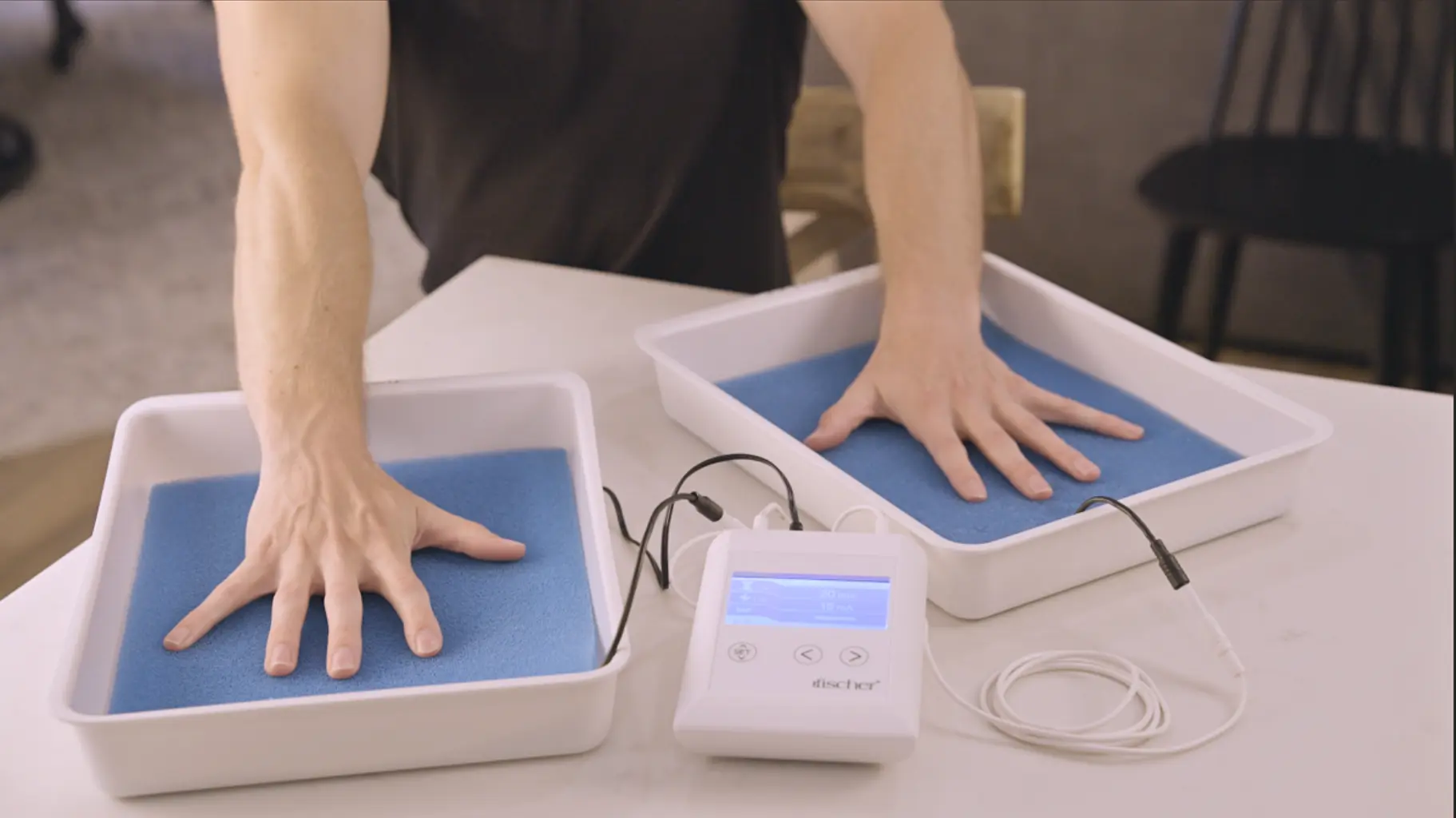Comprehending the Source of Excessive Sweating and Its Influence on Day-to-day Live
While it is typically comprehended as a physiological response to regulate body temperature level, the triggers for too much sweating can differ widely amongst individuals, incorporating not just physical elements however likewise psychological and emotional aspects. By diving into the origin causes of hyperhidrosis and discovering its multifaceted results, a deeper understanding of this pervasive concern can be acquired, dropping light on the intricacies that people grappling with extreme sweating navigate on a day-to-day basis.
Physiology of Sweat Glands
The policy of sweat production, an important physiological process, is primarily controlled by the activity of gland distributed across the body. Gland are categorized into 2 major kinds: eccrine and apocrine glands. Eccrine glands are one of the most countless and are located in nearly all locations of the body. They play an essential duty in thermoregulation by secreting a watery fluid onto the skin's surface area, which vaporizes and assists cool down the body down. On the other hand, apocrine glands are focused in locations rich in hair roots, such as the armpits and groin, and their secretions are thicker and milky in look.
When the body temperature rises, either due to physical task, heats, or psychological stress, the nerves activates the gland to create sweat. This sweat is composed largely of water and electrolytes like salt and chloride. The procedure of sweat production is necessary for keeping the body's inner temperature level within a narrow, ideal array, highlighting the vital duty sweat glands play in human physiology.
Triggers for Excessive Sweating
In recognizing the source of excessive sweating, it is crucial to recognize the triggers that can result in this physical reaction. Too much sweating, additionally known as hyperhidrosis, can be triggered by numerous aspects, both environmental and physiological. One common trigger is psychological tension or anxiety, which can boost the body's sweat glands to generate more sweat than is needed for cooling down. Physical physical effort, heats, and spicy foods are also known to activate too much sweating in individuals susceptible to this problem. Moreover, particular clinical conditions like menopause, diabetic issues, or hyperthyroidism can add to excessive sweating as well.
Furthermore, drugs such as some antidepressants, opioids, and certain supplements can also work as triggers for hyperhidrosis. Recognizing these triggers is crucial in handling extreme sweating successfully - Treatment for hyperhydrosis of hands. By determining and attending to the certain triggers that trigger extreme sweating in an individual, doctor can create tailored therapy strategies to minimize this condition and improve the individual's lifestyle
Medical Issue Associated
Connected with too much sweating are various medical conditions that can aggravate this physiological reaction. One typical problem is hyperhidrosis, a condition characterized by unusually increased sweating that exceeds the body's thermoregulatory requirements. This can materialize in focal locations like the palms, soles, underarms, or face, impacting an individual's lifestyle due to social shame and discomfort.
Furthermore, endocrine disorders such as hyperthyroidism, diabetes mellitus, and menopausal warm flashes can also result in excessive sweating. Hyperthyroidism creates an overproduction of thyroid hormonal agents, increasing metabolism and activating sweating. Diabetic issues can induce sweating episodes, especially during hypoglycemic episodes when blood sugar degrees drop too reduced. Menopausal hot flashes, attributed to hormone changes throughout menopause, can create extreme and sudden sweating, commonly come with by flushing and heart palpitations.
Additionally, infections like hiv, endocarditis, and tuberculosis have been associated with evening sweats, a typical symptom understood to disrupt sleep and affect overall wellness. These medical problems highlight the varied array of underlying aspects that can add to extreme sweating, requiring thorough analysis and administration by medical care professionals.
Psychological and psychological Variables

Effect on Social Communications
Excessive sweating can have profound results on a person's capability to engage easily in social communications. his comment is here The noticeable indicators of sweat stains or wet patches on clothes can lead to humiliation and self-consciousness, creating individuals to withdraw from social situations. This withdrawal can influence partnerships, limit social tasks, and impede individual and specialist growth.

In addition, the anxiety and self-confidence concerns originating from extreme sweating can impact interaction and interpersonal abilities. People might battle to concentrate on discussions, take part in group tasks, or share themselves confidently. This can result in sensations of seclusion and solitude, as social links come to be challenging to preserve.
Verdict

While it is generally comprehended as a physiological response to control body temperature, the triggers for too much sweating can differ commonly amongst people, including not only physical elements yet mental and additionally psychological aspects. By diving into the root triggers of hyperhidrosis and exploring its multifaceted effects, a much deeper understanding image source of this pervasive issue can be gotten, dropping light on the intricacies that people grappling with excessive sweating navigate on a day-to-day basis.
Physical physical effort, high temperatures, and spicy foods are also understood to trigger excessive sweating in people vulnerable to this condition. By identifying and dealing with the certain triggers that prompt extreme sweating in a specific, healthcare providers can develop customized treatment strategies to reduce this problem and boost the individual's high quality of life.
Extreme sweating can have extensive impacts on a person's capability to engage pleasantly in social communications.